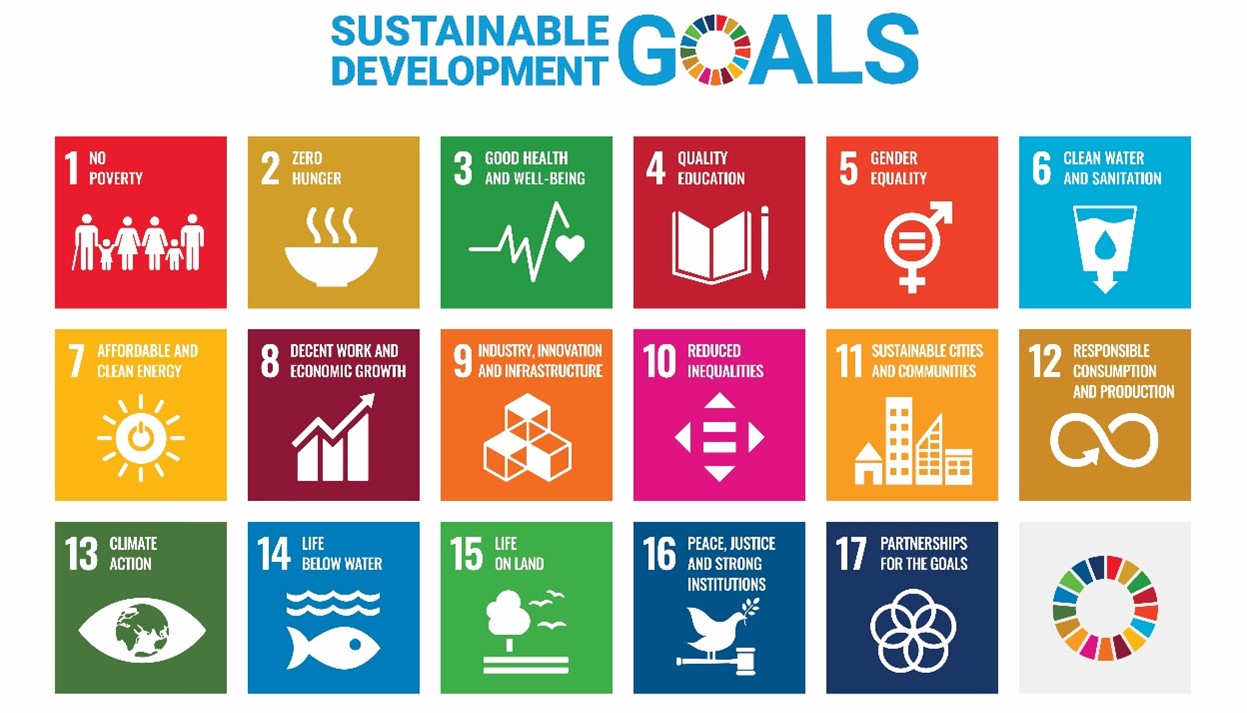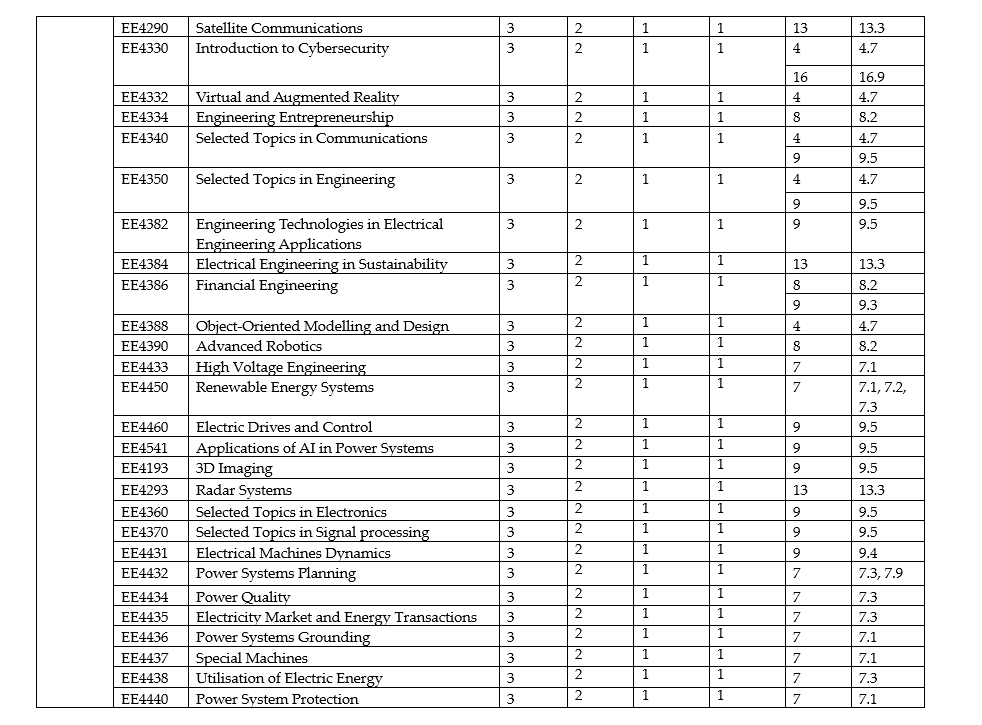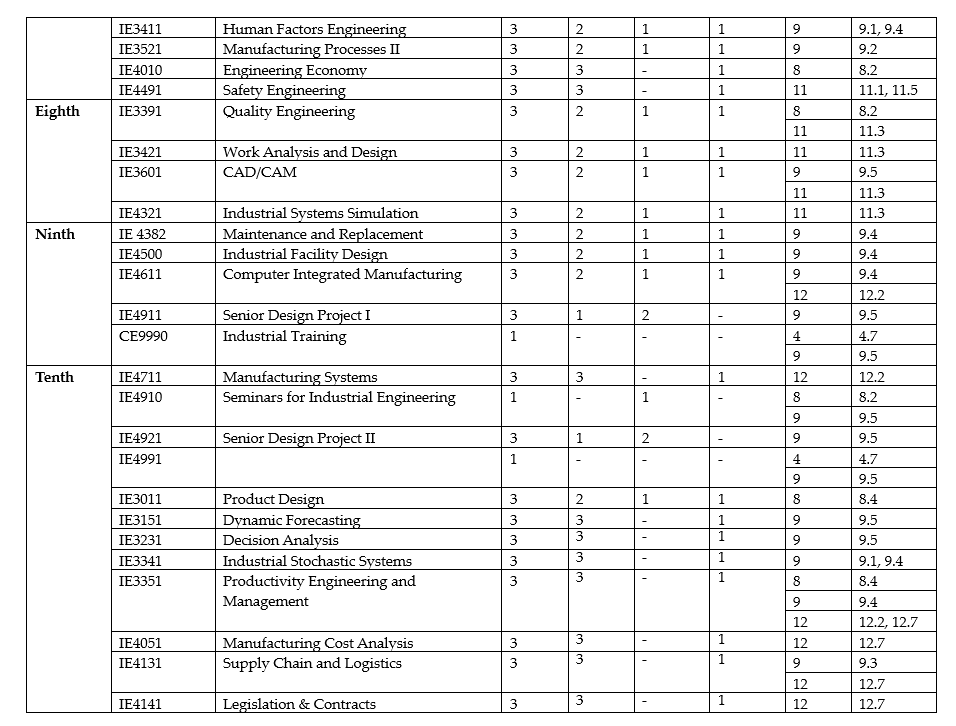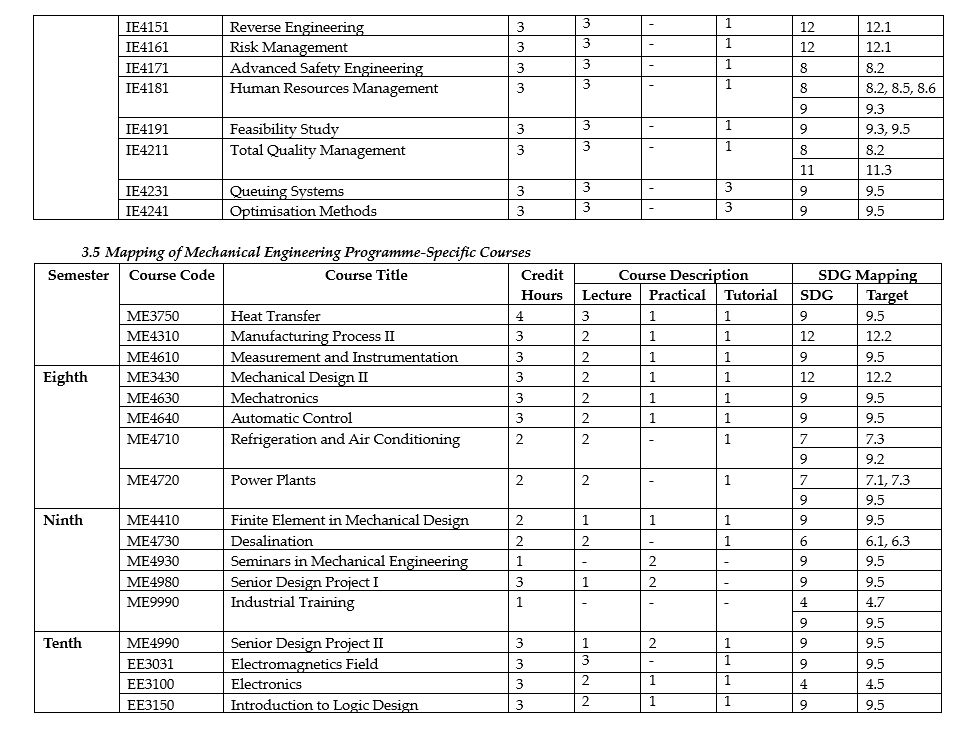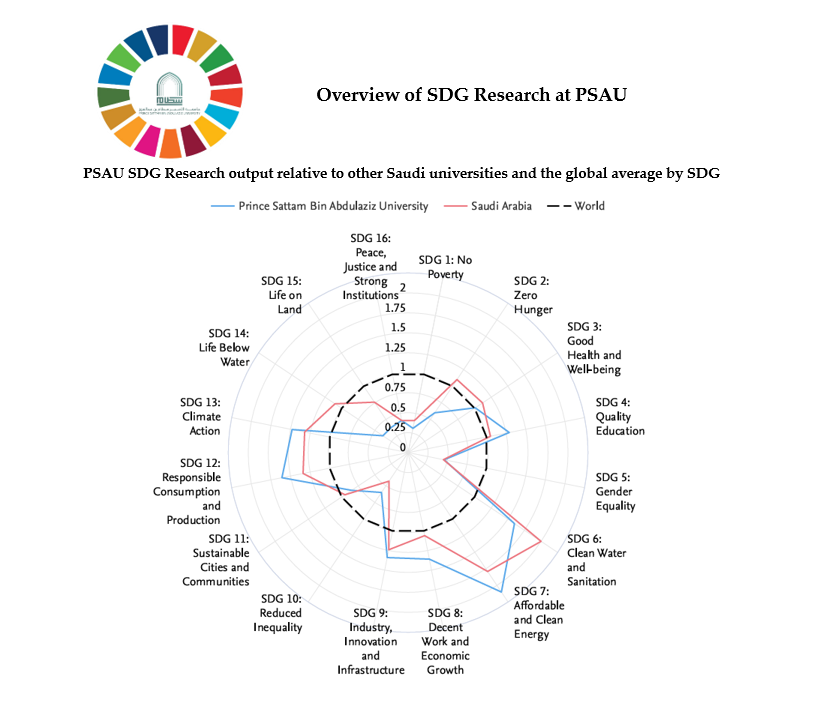
SDGs at PSAU (College of Engineering)
- Mapping of College of Engineering Courses to UN Sustainable Development Goals (SDGs) and Their Targets
As part of the PSAU initiative to integrate SDG education across all its academic offerings, PSAU and the College of Engineering have systematically mapped each course in the college to the appropriate SDGs and targets. Each course contributes to specific goals, ranging from promoting clean energy and sustainable infrastructure to ensuring quality education and fostering innovation in industrial processes.
By meticulously mapping the contents of each course offered in the college to the targets of the SDGs, this section enumerates outcomes of steps adopted to integrate SDG practices into the curriculum of selected courses in programmes offered at the College of Engineering.

SDG 6: Clean Water and Sanitation
Courses:
- CE 4450: Water and Wastewater Treatment
- Target 6.3: Improve water quality by reducing pollution, eliminating dumping, and increasing recycling and safe reuse globally.
- Integration: The course was revised to focus on teaching treatment processes for both water and wastewater, thereby enabling students to design systems that improve water quality and minimise environmental impacts.
- CE 4470: Sanitary Practices Laboratory
- Target 6.1: Achieve universal and equitable access to safe and affordable drinking water.
- Integration: The course was revised to provide practical experience in analysing water and wastewater quality thereby helping to ensure students can contribute to achieving clean water standards.
- CE 4441: Environmental Engineering
- Target 6.3: Reduces environmental impacts through pollution control and sustainable waste management.
- Integration: The course was revised to focus on the application of engineering principles to improve water quality, protect ecosystems, and manage environmental resources effectively.
- CE 4481: Air Pollution Control and Design
- Target 6.3: Helps manage pollution levels, indirectly improving water quality by controlling pollutants that may affect water sources.
- Integration: This course teaches air quality control, which supports the holistic management of environmental impacts, including water pollution.
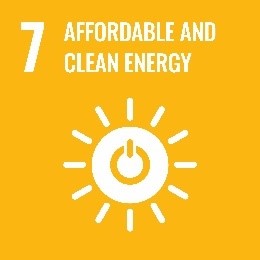
SDG 7: Affordable and Clean Energy
Courses:
- PHYS 1040: General Physics II
- Target 7.2: Increase the use of clean energy technologies by teaching foundational physics principles related to electromagnetism and energy.
- Integration: The course was revised to provide students with the necessary physics background to innovate and design clean energy solutions.
- EE 3350: Electromechanical Energy Conversion
- Target 7.1: Ensure universal access to affordable, reliable, and modern energy services.
- Integration: The course now focuses on knowledge of energy conversion systems, critical for designing energy-efficient technologies that support universal energy access.
- EE 3400: Fundamentals of Power Systems
- Target 7.2: Increase substantially the share of renewable energy in the global energy mix.
- Integration: The course was revised to focus on the design and management of power systems, with applications in renewable energy integration and sustainable electricity infrastructure.
- EE 4640: Selected Topics in Renewable Energy
- Target 7.2: Supports the development of renewable energy systems such as solar, wind, and hydropower.
- Integration: The course now covers advanced topics in renewable energy, promoting the expansion of clean energy technologies to meet global energy demands.
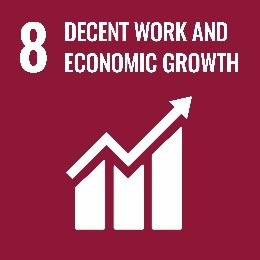
SDG 8: Decent Work and Economic Growth
Courses:
- IC103: Economic System in Islam
- Target 8.10: Strengthen domestic financial institutions to encourage sustainable economic growth.
- Integration: This now course teaches Islamic economic principles, focusing on ethical financial systems that encourage fair resource distribution and economic stability.
- IE 4010: Engineering Economy
- Target 8.2: Achieve higher levels of economic productivity through diversification, technological upgrading, and innovation.
- Integration: This course focuses on economic decision-making in engineering, preparing students to drive productivity and innovation in industrial sectors.
- GEU 4020: Engineering Projects Management
- Target 8.2: Achieve higher levels of productivity by managing resources efficiently through modern project management techniques.
- Integration: This course teaches students the skills required to manage engineering projects, leading to higher productivity and efficiency in the workplace.
- IE 4622: Artificial Intelligence in Industry
- Target 8.2: Supports technological upgrading and innovation through the integration of AI into industrial processes.
- Integration: This course provides insights into AI applications in industry, fostering automation, improved productivity, and economic growth.
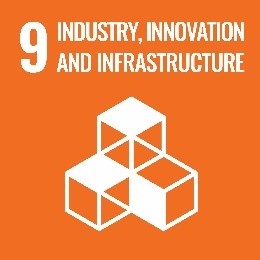
SDG 9: Industry, Innovation, and Infrastructure
Courses:
- CE 1021: Engineering Drawing and Graphics
- Target 9.1: Develop resilient infrastructure that supports economic development and human well-being.
- Integration: The course provides essential skills in technical drawing, which is a foundational tool for infrastructure design and planning.
- EE 2010: Electric Circuits I
- Target 9.4: Upgrade infrastructure and retrofit industries to make them sustainable, with increased resource-use efficiency.
- Integration: This course teaches fundamental electrical concepts essential for designing and upgrading efficient electrical infrastructure.
- EE 3010: Signals and Systems Analysis
- Target 9.5: Enhance research and innovation in the field of electrical engineering and communication systems.
- Integration: This course introduces signal processing, crucial for innovation in telecommunications and the development of smart infrastructure.
- EE 4210: Digital Communications
- Target 9.c: Significantly increase access to ICT and strive to provide universal access to the Internet.
- Integration: The course now focuses on digital communication systems that are essential for expanding global connectivity and fostering innovation in the digital economy.
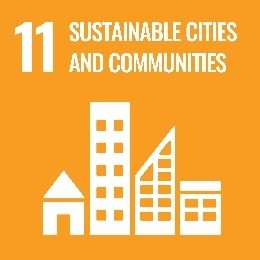
SDG 11: Sustainable Cities and Communities
Courses:
- GEU 1011: Introduction to Engineering
- Target 11.3: Enhance inclusive and sustainable urbanisation and capacity for sustainable human settlement planning.
- Integration: This course provides foundational knowledge in engineering and the role of engineers in society, including safety, sustainability, urban planning and infrastructure development.
- CE 4850: Geotechnical Engineering II
- Target 11.5: Significantly reduce the number of deaths and economic losses caused by disasters.
- Integration: This course prepares students to design geotechnically stable structures, reducing the risks of infrastructure failure during natural disasters.
- CE 4481: Air Pollution Control and Design
- Target 11.6: Reduce the adverse environmental impact of cities, including air quality and municipal waste management.
- Integration: This course teaches students how to design systems that control air pollution, contributing to cleaner urban environments.
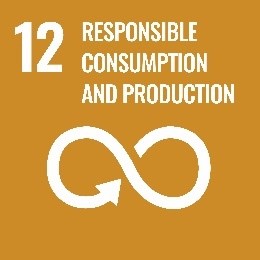 SDG 12: Responsible Consumption and Production
SDG 12: Responsible Consumption and Production
Courses:
- ME 2520: Materials Science and Engineering
- Target 12.5: Substantially reduce waste generation through prevention, reduction, recycling, and reuse.
- Integration: The course covers material properties and recycling processes that support sustainable consumption and production patterns in engineering.
- EE 3050: Electrical Materials
- Target 12.5: Focuses on the study of materials with sustainable applications, contributing to responsible resource consumption.
- Integration: This course provides students with knowledge of advanced materials essential for developing sustainable technologies and products.
- CE 4441: Environmental Engineering
- Target 12.4: Achieve environmentally sound management of chemicals and all wastes, and reduce their release to air, water, and soil.
- Integration: This course teaches waste management practices that promote sustainability and reduce environmental impacts.
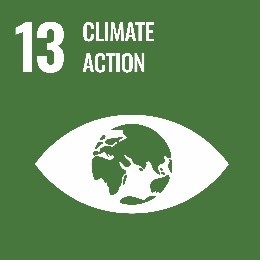
SDG 13: Climate Action
Courses:
- CE 4481: Air Pollution Control and Design
- Target 13.2: Integrate climate change measures into policies, strategies, and planning.
- Integration: This course now teaches the design of systems that reduce air pollution, contributing to climate action by mitigating emissions.
- EE 4640: Selected Topics in Renewable Energy
- Target 13.1: Strengthen resilience and adaptive capacity to climate-related hazards by promoting renewable energy solutions.
- Integration: The course focuses on the development of renewable energy technologies, which directly contribute to reducing the impact of climate change.
The enumerated mapping illustrates the direct contributions of PSAU College of Engineering courses toward preparing students towards contributions to attain the UN SDGs, thereby highlighting the importance of education in fostering sustainable development particularly in energy, water, infrastructure, and urban systems, as well as mitigating climate impacts.
- Overview of College Courses Mapped to SDGs
This section provides further details of the PSAU SDG integration at the College by enumerating how a selection of university, college, and programmes requirements at the college prepare its students to value the SDGs and commit to their attainment in their everyday practice of the engineering profession.
2.1 Mandatory SDG Education – University Requirements (showing Selected Samples)
These courses form part of the mandatory graduation requirements for every undergraduate degree offered at PSAU.
- IC101: Entrance to Islamic Education
- SDG 4: Quality Education (Target 4.7): The course contents ensure that students acquire values and ethics to promote sustainable development, peace, and cultural diversity.
- IC102: Islam and Building of Society
- SDG 5: Gender Equality (Target 5.1): The course contents discusses social systems, family structures, and gender roles in Islamic society, contributing to understanding social justice and equality.
- IC103: Economic System in Islam
- SDG 8: Decent Work and Economic Growth (Target 8.10): The course teaches ethical economic systems, promoting fair financial practices and sustainable economic growth.
- IC104: Principles of Political System in Islam
- SDG 16: Peace, Justice, and Strong Institutions (Target 16.3): The course provides a framework for understanding justice, governance, and effective institutions, as envisioned by Islamic principles.
2.2 Mandatory SDG Education – College Requirements
These courses form part of the college requirements for undergraduate degrees in civil, electrical, industrial, mechanical, and mechatronics engineering. This section highlights how contents in the mandatory college curricula support SDG goals and targets.
- ENGL1210: Reading Skills
- SDG 4: Quality Education (Target 4.6): The course enhances literacy and communication skills crucial for academic success and lifelong learning.
- ENGL1220: Writing Skills
- SDG 4: Quality Education (Target 4.4): The course improves vocational and technical skills, particularly in professional communication and writing for academic and technical contexts.
- ENGL1230: Listening/Speaking Skills
- SDG 4: Quality Education (Target 4.4): The course strengthens communication and comprehension skills necessary for participating in global academic and professional discussions.
- ENGL1604: English for Technical Purposes
- SDG 4: Quality Education (Target 4.4): The course equips students with specialised language skills for effective communication in science and technology, thereby contributing to employability and technical competence.
- MC1400: Communication Skills
- SDG 4: Quality Education (Target 4.7): The course develops interpersonal, professional, and communication skills, essential for success in academic and professional environments, and supports global citizenship.
- CT1400: Computer Skills
- SDG 9: Industry, Innovation, and Infrastructure (Target 9.c): The course promotes digital literacy and the use of ICT tools, which are key for advancing modern industries and fostering innovation in engineering.
- MATH1050: Differential Calculus
- SDG 4: Quality Education (Target 4.4): The course develops critical mathematical skills necessary for solving engineering problems, laying a foundation for technical careers.
- MATH1060: Integral Calculus
- SDG 4: Quality Education (Target 4.4): The course supports advanced understanding of integral calculus, which is essential for engineering analysis and application in real-world problem-solving.
- MATH1070: Algebra & Analytic Geometry
- SDG 4: Quality Education (Target 4.4): The course provides essential analytical and geometrical tools that are fundamental in many engineering fields, thereby enabling students to model and solve complex problems.
- MATH2030: Differential and Integral Calculus
- SDG 4: Quality Education (Target 4.4): The course enhances technical skills through advanced mathematical applications, which are vital for various engineering and scientific disciplines.
- MATH2040: Differential Equations
- SDG 4: Quality Education (Target 4.4): The course focuses on problem-solving using mathematical models, which are essential for understanding engineering systems and their behaviour.
- PHYS1010: General Physics (1)
- SDG 7: Affordable and Clean Energy (Target 7.1): The course introduces fundamental concepts of matter and energy, which are critical for developing sustainable energy solutions.
- CHEM1010: General Chemistry
- SDG 6: Clean Water and Sanitation (Target 6.3): The course provides an understanding of chemical processes that help improve water quality and minimise pollution.
- PHYS1040: General Physics (2)
- SDG 7: Affordable and Clean Energy (Target 7.2): The course focuses on electricity, magnetism, and quantum mechanics that are essential for understanding renewable energy technologies and infrastructure development.
- GEU 1011: Introduction to Engineering
- SDG 4: Quality Education (Target 4.3): The course provides orientation for engineering disciplines, promoting access to technical and vocational education as well as the importance of the pursuit of sustainable engineering practices.
- GEU 1090: Computer Programming for Engineering
- SDG 9: Industry, Innovation, and Infrastructure (Target 9.c): This course teaches programming skills critical for innovation in engineering fields and the development of ICT systems.
- GEU 2100: Engineering Mechanics
- SDG 9: Industry, Innovation, and Infrastructure (Target 9.4): The course provides mechanical principles necessary for designing efficient infrastructure.
- GEU 2610: Engineering Professional Communications
- SDG 4: Quality Education (Target 4.4): This course focuses on improving communication skills essential for technical and vocational careers in engineering.
- GEU 3201: Engineering Statistics
- SDG 9: Industry, Innovation, and Infrastructure (Target 9.5): This course teaches statistical methods necessary for innovation and industrial research.
- GEU 4020: Engineering Projects Management
- SDG 9: Industry, Innovation, and Infrastructure (Target 9.1): The course prepares students for managing large-scale engineering projects, thereby fostering sustainable infrastructure development.
2.3 Civil Engineering (Mapping of Selected Core Courses)
- CE 1021: Engineering Drawing and Graphics
- SDG 9: Industry, Innovation, and Infrastructure (Target 9.1): This course teaches foundational skills for designing sustainable infrastructure.
- CE 4850: Geotechnical Engineering II
- SDG 11: Sustainable Cities and Communities (Target 11.5): This course contributes to understanding best practices for disaster risk reduction by improving the stability of geotechnical structures like slopes and foundations.
- CE 4450: Water and Wastewater Treatment
- SDG 6: Clean Water and Sanitation (Target 6.3): The course focuses on water treatment technologies, thereby directly addressing water quality and wastewater treatment solutions.
- CE 4470: Sanitary Laboratory
- SDG 6: Clean Water and Sanitation (Target 6.1): The course provides hands-on training in analysing water and wastewater, thereby contributing to universal access to safe drinking water.
- CE 4441: Environmental Engineering
- SDG 12: Responsible Consumption and Production (Target 12.5): This course teaches waste management techniques to reduce environmental pollution and improve sustainability.
- CE 4481: Air Pollution Control and Design
- SDG 13: Climate Action (Target 13.2): The course focuses on designing systems to control air pollution, thereby contributing to climate action by reducing emissions.
2.4 Electrical Engineering (Mapping of Selected Core Courses)
- EE2010: Electric Circuits I
- SDG 9: Industry, Innovation, and Infrastructure (Target 9.4): The course teaches the basics of circuit analysis, which are essential for modernising electrical systems and improving energy efficiency.
- EE2020: Electric Circuits II
- SDG 9: Industry, Innovation, and Infrastructure (Target 9.1): The course focuses on AC and DC circuits, laying the groundwork for infrastructure that supports industrial growth and sustainable power systems.
- EE2030: Electromagnetics I
- SDG 9: Industry, Innovation, and Infrastructure (Target 9.5): This course introduces students to fields that enable innovation in communication systems, which are essential for building resilient infrastructure.
- EE2041: Electromagnetics II
- SDG 9: Industry, Innovation, and Infrastructure (Target 9.c): This course teaches advanced electromagnetic theory, that are crucial for the development of advanced communication technologies and systems.
- EE2111: Logic Design
- SDG 9: Industry, Innovation, and Infrastructure (Target 9.4): The course develops logic circuit design skills that are essential for the advancement of computing technologies and digital systems used in industry.
- EE3010: Signals and Systems Analysis
- SDG 9: Industry, Innovation, and Infrastructure (Target 9.5): This course introduces signal processing techniques critical for telecommunications, innovation, and infrastructure development.
- EE3050: Electrical Materials
- SDG 9: Industry, Innovation, and Infrastructure (Target 9.4): The course provides knowledge on advanced materials necessary for developing more efficient and sustainable electronic systems.
- EE3200: Communications Principles
- SDG 9: Industry, Innovation, and Infrastructure (Target 9.c): The course teaches the fundamentals of communication systems that are vital for improving global connectivity and access to information.
- EE3350: Electromechanical Energy Conversion
- SDG 7: Affordable and Clean Energy (Target 7.1): This course focuses on electrical energy conversion systems, thereby supporting renewable energy development and improving access to clean energy.
- EE3400: Fundamentals of Power Systems
- SDG 7: Affordable and Clean Energy (Target 7.2): The course prepares students to design and manage power systems that integrate renewable energy, thereby contributing to sustainable energy infrastructure.
- EE3511: Automatic Control Systems
- SDG 9: Industry, Innovation, and Infrastructure (Target 9.5): This course focuses on control systems that enhance the efficiency of industrial processes and automation, fostering innovation.
- EE3561: Computational Methods for Electrical Engineering
- SDG 9: Industry, Innovation, and Infrastructure (Target 9.5): The course enhances students' computational skills, which are critical for solving engineering problems and supporting technological innovation.
- EE3571: Engineering Drawing and Standards
- SDG 9: Industry, Innovation, and Infrastructure (Target 9.1): The course teaches design principles for electrical systems, thereby supporting the development of efficient and sustainable infrastructure.
- EE4010: Seminars in Electrical Engineering
- SDG 4: Quality Education (Target 4.7): The course encourages participation in discussions and research, thereby promoting sustainable development education and industry awareness.
- EE4190: Industrial Instrumentation
- SDG 9: Industry, Innovation, and Infrastructure (Target 9.5): The course introduces essential instrumentation for modern industrial processes, thereby contributing to increased efficiency and innovation.
- EE 4640: Selected Topics in Renewable Energy
- SDG 7: Affordable and Clean Energy (Target 7.2): This course overs renewable energy sources, thereby directly supporting the expansion of clean energy in the global energy mix.
- EE 4210: Digital Communications
- SDG 9: Industry, Innovation, and Infrastructure (Target 9.c): This course focuses on advancing digital communication systems, essential for global connectivity and modern infrastructure.
- EE 4670: Selected Topics in Artificial Intelligence
- SDG 9: Industry, Innovation, and Infrastructure (Target 9.5): The course advances research in AI, fostering innovation in industrial processes.
- EE 4680: Selected Topics in Control Engineering
- SDG 9: Industry, Innovation, and Infrastructure (Target 9.5): The course supports control systems necessary for optimising industrial efficiency and automation.
2.5 Industrial Engineering (Mapping of Selected Core Courses)
- IE 4010: Engineering Economy
- SDG 8: Decent Work and Economic Growth (Target 8.2): This course provides tools for economic decision-making in engineering, thereby promoting sustainable industrial growth.
- IE 4020: Engineering Project Management
- SDG 9: Industry, Innovation, and Infrastructure (Target 9.1): This course develops skills in managing infrastructure projects, thereby supporting sustainable development.
- IE 4622: Artificial Intelligence in Industry
- SDG 9: Industry, Innovation, and Infrastructure (Target 9.5): This course teaches AI applications in industrial processes, thereby contributing to innovation and increased industrial productivity.
2.6 Mechanical Engineering (Mapping of Selected Core Courses)
- ME 2410: Mechanical Engineering Drawing
- SDG 9: Industry, Innovation, and Infrastructure (Target 9.4): This course enhances skills in mechanical design and technical drawing that are critical for sustainable industrial processes.
- ME 2520: Materials Science and Engineering
- SDG 12: Responsible Consumption and Production (Target 12.5): This course promotes understanding of material properties and recycling methods to reduce waste and improve resource efficiency.
- ME4990: Senior Design Project II
- SDG 9: Industry, Innovation, and Infrastructure (Target 9.5): This course requires students to apply engineering knowledge to solve real-world problems, thereby fostering innovation in infrastructure and industry.

